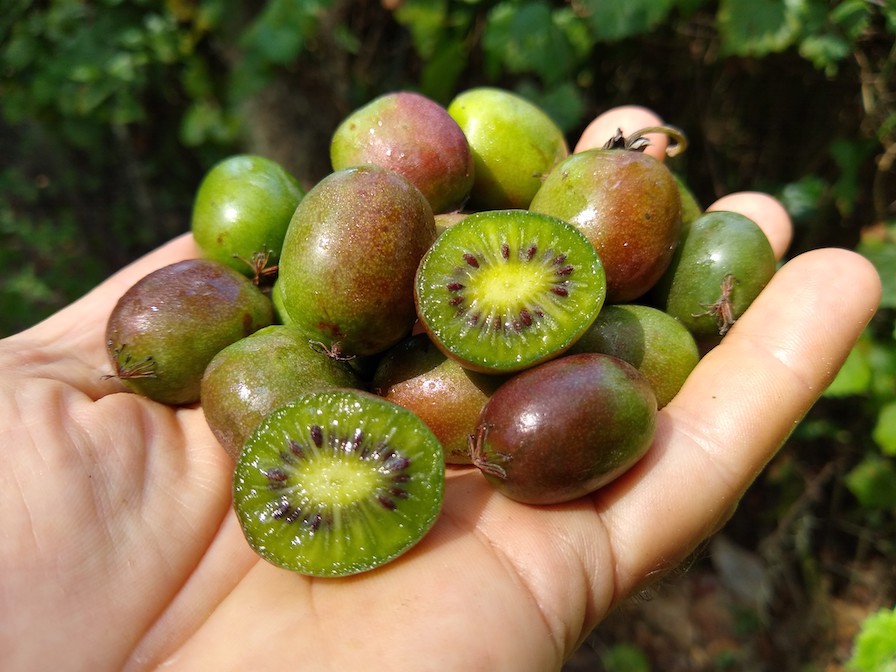A Deep Dive Into Kiwi Farming: Revealing the Strategies, Difficulties, and Possible for Sustainable Farming
In this article, we will certainly take you on a deep dive right into the techniques, obstacles, and capacity for sustainable farming in the globe of kiwis. Discover the optimum growing conditions, cutting-edge growing techniques, and the sustainable techniques that can open the full possibility of kiwi farming.
Ideal Growing Problems for Kiwi Plants

Cutting-Edge Farming Methods
GPS innovation allows for exact mapping and monitoring of the kiwi creeping plants, enhancing irrigation and fertilization methods to make certain that each plant gets the essential nutrients and water. Another cutting-edge technique is upright farming, which involves growing kiwi plants in piled layers using synthetic illumination and climate-controlled environments. By welcoming these innovative techniques, kiwi farmers can accomplish higher performance, maximize resource usage, and contribute to lasting farming methods.
Challenges Encountered by Kiwi Farmers
Encountering various obstacles, kiwi farmers must browse through numerous challenges to guarantee effective cultivation and lasting farming practices. Among the major challenges they face is environment irregularity. Kiwi plants need a details environment to flourish, with awesome wintertimes and warm summertimes. Nevertheless, uncertain weather condition patterns, such as severe temperatures, frost, and dry spell, can interfere with the development and development of kiwi crops. Farmers must continuously monitor weather condition forecasts and implement methods like watering, frost protection, and color fabric to mitigate the negative effects of climate irregularity.
Another substantial difficulty for kiwi farmers is insects and diseases. Kiwi vines are at risk to a series of insects, including mites, aphids, and thrips, which can harm the leaves and fruit. Additionally, conditions like Psa (Pseudomonas syringae pv. actinidiae) and botrytis can badly influence kiwi manufacturing. Farmers must use incorporated bug administration practices, such as regular surveillance, organic control techniques, and correct cleanliness, to handle and stop pest and illness break outs.
Additionally, kiwi farmers deal with labor and labor expense issues. Kiwi cultivation calls for labor-intensive activities, such as pruning, harvesting, and trellising. Nevertheless, discovering knowledgeable workers that are knowledgeable regarding kiwi farming techniques can be tough. Furthermore, labor prices can be high, particularly during peak periods. Farmers require to buy training programs, automation, and effective labor management methods to optimize performance and reduce labor expenses.
Lasting Farming Practices for Kiwi Growing

To guarantee sustainable kiwi cultivation, you can implement an array of practices that promote ecological stewardship and long-term stability of your ranch. Kiwi plants need a significant amount of water, yet excessive watering can lead to water waste and soil disintegration. Embracing sustainable power methods, such as making use of solar power or investing in energy-efficient modern technologies, can lower your farm's carbon footprint and add to an extra lasting kiwi farming system.
Unlocking the Potential of Kiwi Farming
By applying sustainable farming techniques, you can unlock the full capacity of kiwi farming while lessening ecological effect. Kiwi farming has tremendous capacity for development and profitability, however it additionally features its own collection of difficulties. To completely unlock this potential, it is important to adopt lasting techniques that not only make the most of yield and quality yet also guarantee long-lasting practicality.
One key aspect of opening the possibility of kiwi farming is optimizing irrigation practices - what do kiwis taste like. Kiwi plants call for a particular amount of water to thrive, and by making use of reliable irrigation systems such as drip moved here watering or precision sprinklers, you can minimize water wastefulness and lower the risk of waterlogging or dirt disintegration
Another vital variable is soil health administration. Fertile and healthy go right here and balanced soil is essential for the growth and development of kiwi plants. By implementing methods such as cover cropping, crop rotation, and organic fertilizing, you can improve soil structure, boost nutrition accessibility, and lessen the demand for chemical inputs.
Additionally, incorporated insect management (IPM) techniques are important in opening the potential of kiwi farming. By adopting IPM techniques such as biological parasite control, scent traps, and plant surveillance, you can successfully manage pests and diseases while minimizing making use of chemical pesticides.
Conclusion
In verdict, kiwi cultivation holds fantastic prospective for lasting farming methods. With optimal growing problems and a focus on lasting practices, kiwi farming can thrive while reducing environmental impact.
Discover the ideal expanding problems, sophisticated cultivation techniques, and the lasting methods that can unlock the full potential of kiwi farming. By embracing these sophisticated techniques, kiwi farmers can achieve better efficiency, enhance resource utilization, and add to sustainable farming techniques.
Facing various obstacles, kiwi farmers have to navigate via different challenges to ensure effective farming click here for info and lasting farming techniques.By applying sustainable farming methods, you can unlock the full capacity of kiwi farming while minimizing environmental influence.In final thought, kiwi farming holds wonderful potential for sustainable farming practices.